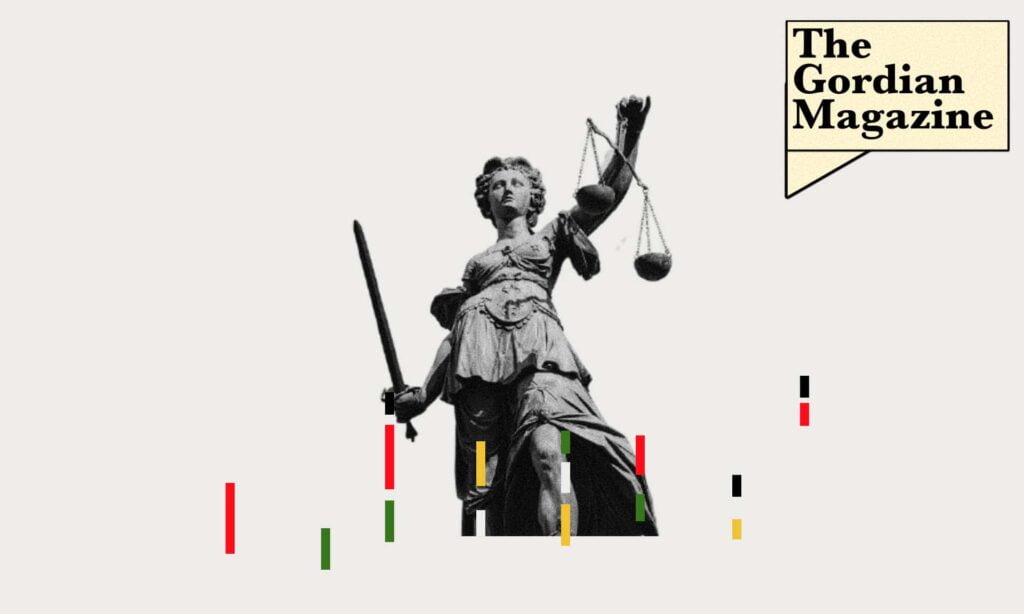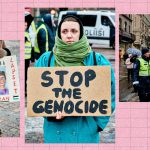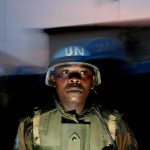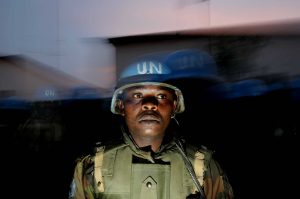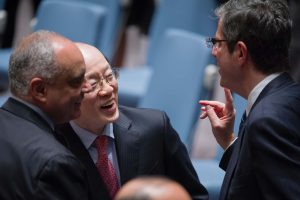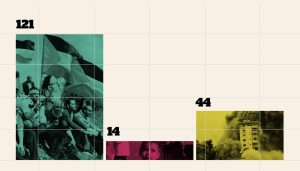Peace, Justice and Strong Institutions are three fundamental facets of any progressive civil society in the 21st century. Therefore, as the UN is in many senses the world’s guardian, one of its utmost duties is to promote, instil and maintain these components globally to ensure collective harmony.
In 2015 – and since the UN’s conception – promoting peace, justice and strong institutions has been at the forefront of the UN’s agenda. This is evident with UN member states dedicating an entire Sustainable Development Goal (SDG) towards this pledge, which will see these beliefs transformed into formal and legitimate processes worldwide by 2030.
Yet, there are a multitude of pressures which are threatening to disrupt the UN’s progress towards this ambitious goal. With some of the most salient being; rife right-wing populism, the COVID-19 pandemic, international and regional conflicts, record-breaking poverty, an escalating climate crisis and the UN’s hypocrisy in promoting these tenets due to its power imbalances, unaccountability, opaqueness and archaic bureaucratic structures.
The purpose of this article is to ascertain whether the UN is making progress towards SDG 16 amidst these challenges and conclude whether the UN is best placed to be promoting these beliefs. If not, what should be replacing it?
SDG 16 Targets
The UN explains ‘Goal 16 of the SDG is dedicated to the promotion of peaceful and inclusive societies for sustainable development, the provision of access to justice for all, and building effective, accountable institutions at all levels.’ The UN has defined 12 Targets and 23 Indicators to track the progress of SDG 16 which can be identified here.
Progression or Regression?
Target 16.1
This target’s primary focus is to ‘significantly reduce all forms of violence and related death rates everywhere’ and it provides the following 4 indicators to track its progress;
- Reduce the victims of homicide
- Reduce conflict-related deaths
- Reduce physical, psychological and sexual violence
- Improve the feeling of safety when walking alone around the area they live
Utilising the useful source SDG tracker, data is only available up to 2017 to track these specific metrics, however alongside further research the following conclusions can be made:
- Victims of homicide in El Salvador and the Bahamas have been reduced greatly. In El Salvador in particular, there were 105.44 intentional homicides per 100,000 in 2015, to 82.84 in 2016 and further research shows 52.019 in 2018. However, results are a mixed bag overall, with intentional murders increasing in countries like Bermuda, Jamaica and Seychelles since 2015.
- Conflict and Terrorist related deaths per 100,000 from 2015 to 2017 are, to put it bluntly, shocking. There has been a huge increase in deaths, with South Sudan, Central African Republic, Yemen, Somalia and Libya being the most casualty inflicted. Conflict-related deaths in 2020 have reduced significantly, however, experts state that this is down to COVID-19 inflicted lockdowns reducing movement. Nevertheless, a hundred or so civilians are killed in armed conflicts every day and there has only been a measly 0.1% decrease in the global homicide rate since 2015.
- Not much change worldwide of women (15 and over) experiencing physical or sexual violence by an intimate partner, with no significant change from 2015 to 2017. Recent studies show 1 in 3 women experience violence – that is 1,274,187,000 women.
- Even people living in relatively safe countries have experienced a deterioration. In Iceland, Poland and Australia, for instance, women felt less safe walking alone by their homes in 2017 than they did in 2015.
The data to be frank is worrying and further action is needed by the UN to establish peace and reduce violence in all its pervasive forms. Currently there are about 40 ongoing wars and 400,000 homicides per year.
Target 16.2
Target 16.2 is all about protecting and ending abuse towards children.
The SDG tracker provides disclaimers about the lack of data, but no explanation why. Still, further research does offer some insight as to why information on crimes committed against children is hard to come by. The main reason is that crimes against children are subject to a multitude of legislation aimed at protecting their identity; therefore, information concerning these crimes is not always available to the public to build datasets around.
Nevertheless, the following conclusions can be made:
- Children that experience violent discipline are primarily situated in Africa, South America and Central Asia.
- Men and Women who were victims of forced sex as children are mainly located in Africa, with Cameroon being particularly bad.
- Child trafficking has fluctuated since 2015, with victims increasing in some countries and decreasing in others. In Nigeria trafficking has increased from 94 to 119 between 2015 and 2017, whereas in Thailand and Mexico there has been a significant reduction: from 142 to 23 for Thailand and from 92 to 44 for Mexico.
- Further research shows that child trafficking in 2020 has identified more potential victims than ever before. Also, that COVID-19 has exacerbated child trafficking and more children are vulnerable to exploitation than ever.
- There are 70 million human trafficking victims worldwide, with 30% being children.
- The SDG tracker portrays rich western countries as having very few incidences of child trafficking, although in fact most trafficked victims from Sub-Saharan Africa and Asia end up in Europe and North America.
- The UN claims human trafficking reached 13-year record high in 2019.
- Every 7 minutes, somewhere in the world, a child is killed by violence.
- Child labour is still rife across Africa and Asia.
The UN’s approach to child trafficking and protecting them against exploitation is failing and calls for fresh ideas. Nobody in the 21st century – especially children – should have to worry about being trafficked or tricked into such situations as a means of escaping conflict or searching for a better life. Trafficking is a complex and intricate problem and currently the data and statistics show the UN is not equipped well enough to solve it.
Additionally, as the article will later explore, the UN itself is committing crimes against the world’s children in the form of peacekeeper abuse. To put it briefly, as Human Rights Watch states: ‘UN peacekeeping has a sexual abuse problem’. Therefore, under these circumstances, how can the UN expect other countries to heed their demands and expectations of protecting children when they endanger them themselves?
Target 16.3
This target is founded upon ensuring equal access to justice for all people across the world. The indicators revolve around tracking victim reports of crime and the amount of unsentenced detainees in prison. The SDG tracker data alongside further research can be reveal the following:
- England, Wales, United States and Chile have seen sharp declines in reporting of robberies from 2015 to 2017.
- Statistics for unsentenced detainees is more of a mixed bag. Some countries such as Lebanon and Afghanistan have seen sharp declines of their prison population being unsentenced detainees (over 50%). Whereas, Belize has seen a huge increase of 64% – meaning nearly two thirds of its prison population in 2017 had not been sentenced for a crime.
- In 2017, over 50% of the prison population in 25 countries were unsentenced detainees.
- The Sustainable Development Report highlights that in 2021 many countries are failing the unsentenced detainee indicator. These countries are primarily situated in Africa and South America.
- 60% of countries have overcrowding of prison populations which further risks the spread of COVID-19
- There are instances of gross incarceration rates for ethnic minorities worldwide. In the UK, for example, black, Asian and ethnic minorities only constitute 14% of the population, yet make up 25% of the prison population
Prison statistics of unsentenced detainees, overcrowding and prejudiced incarceration rates are shocking and show that the world under the UN’s supervision is unjust. When you add COVID-19 into the mix of overcrowded prisons, the feeling of justice evaporates even further as unsentenced detainees are being over-exposed to the deadly disease, despite not having committed crimes.
Prison systems around the world are institutionally racist – especially the US – and the UN needs to impose reform.
Target 16.4
This target is about reducing illicit arms flows and seizing illegal arms. The SDG tracker provides no information about the progress towards this goal, but further research paints a worrying picture:
- The illegal small arms trade is worth $6.5 billion (2017)
- Despite treaties and agreements preventing gun trade in order to stop genocide and murder, the global arms trade in 2017 was worth $95 billion.
- The top 100 arms companies made $392.2 billion
- The US is the top arms exporter worldwide, with other permanent members of the Security Council, such as France and Russia, also high up on the list.
For an institution like the UN whose principal goal is to maintain peace, the extent of arms trade worldwide is extremely worrying. This worry is exacerbated as the countries we are meant to look up to for guidance are funding some of the world’s worst conflicts.
Target 16.5
Target 16.5 is focused on substantially reducing corruption and bribery worldwide. Utilising the source Transparency International, statistics show that:
- $1 trillion in bribes is paid worldwide every year
- A survey conducted around people who live in EU member states found that one-third of people think corruption is getting worse. Infact, corruption is on the rise in Europe
- $1.26 billion is lost to corruption ever year in developing countries
Corruption and bribery, together with greed is endemic to a 21st century politician, part of the fabric of international politics and unfortunately a part of human nature. The UN itself is a major culprit of the crimes it is trying to purge from the world as this article will later identify, which poses the point of the UN needing to fix itself before lecturing others, otherwise the world will be stuck in a continuous cycle of repeating the same mistakes.
Target 16.6
The UN’s definition of this goal is to develop effective, accountable and transparent institutions worldwide. The SDG tracker and further research show:
- Certain countries, such as Guinea-Bissau and Sri Lanka, are lacking transparency, because since 2015 they have spent more than their original approved budgets.
- The OECD finds that citizens trust public services more than the government itself
- Public trust has fallen heavily in regard to countries’ handling of COVID-19. The most affected being Brazil and the United States.
The UN lacks many of the criteria which determine a transparent institution. Therefore, the UN needs to introspect first and be accountable before expecting countries across the world to follow suit.
Rest of the targets
The rest of the data on other targets is sparse on SDG tracker, nevertheless the progress can be summarised as follows:
- Journalist killings worldwide have risen from 2015
- Countries in Africa suppress public access to information – albeit there could be a lack of resources to help produce freedom of information
- Many countries are not in compliance with the Paris Principles
- Countless citizens around the world have no recognized legal identity – meaning there has been hardly any progress to ‘legal identity for all by 2030’
Verdict – What does the data mean?
Despite some victories for the UN in reducing the global homicide rate, the road to ensuring peace, justice and transparent institutions across the world by 2030 is filled with potholes and traffic. The UN is beyond its depth when it comes to safeguarding our children, reducing illicit sales of arms, curtailing corruption and reducing illegitimate prison sentences.
These revelations raise serious questions about what has gone wrong on the UN’s path to guarantee world peace, justice and transparent institutions.
What are some criticisms of the UN regarding SDG 16?
-The Goal itself
- It is fundamentally a political goal which can run against some of the aims of development aid
- It is hard to monitor and get data from governments.
- The goals are too top down, and neglect infrastructure issues in developing countries.
–People who live in glass houses shouldn’t throw stones
UN peacekeepers have widespread and damaging sexual assault accusations which adds to the problem of them being responsible for safeguarding children and the world’s most vulnerable. According to specialists, such as academics Babiak and Hare, corruption is endemic in the UN. Moreover, efficacy and transparency of measures imposed by the UN to battle against corruption remains unclear and is riddled with loopholes.
The UN as an institution is not transparent or accountable as there are many power imbalances, burdensome bureaucracy constraints, progressivism and the failure to hold powerful member states and corporations to account despite their role in exacerbating conflict, child endangerment and promoting violence.
–War, not Peace
Since pledging to the goal in 2015, ongoing conflicts in Yemen, Syria, Congo and Sudan have seen casualties at over 1,000,000. The UN is not an effective peacekeeper or solver of conflicts with many wars still ongoing.
Failure to protect children
- 9 in 10 children live in countries where corporal punishment is not fully prohibited, leaving 732 million children without legal protection.
- 1 in 3 internet users worldwide is a child and 800 million of them use social media. Any child can become a victim of online violence.
- Child online sexual abuse reports to NCMEC has grown from 1 million in 2014 to 45 million in 2018.
- 246 million children worldwide are affected by school-related violence each year.
The critiques are apparent and raise a series of questions such as: How is it moral, ethical, or logical for the UN to dictate what a strong and peaceful institution should look like, when broadly speaking it is not one itself?
The UN must readdress goal 16 and incorporate expert-based advice and provide more transparency if it ever wants to achieve peace and justice by 2030.
What is required for the UN to achieve these goals? (Some expert-based solutions)
- The rule of law and human rights need to be strengthened.
- The UN needs to reinvigorate arms treaties and buff them up with sanction-based penalties if member states bend or break the rules.
- More accountability from the UN.
- More incentives needed to fight corruption
- Human rights need to be universal and enshrined in every member state’s legislation to protect children and the world’s most vulnerable.
- Transparent and unprejudiced judiciary institutions to reduce overcrowding of prisons with unsentenced detainees
- Remove racially institutionalised prosecution
- Curb the spread of COVID-19 through a fairer and more effective legal system
- Strengthen child rights through international legislation and impose harsh sanctions to member states that do not abide by it in order to reduce exploitation, trafficking and in harrowing instances death.
These solutions invoke simplicity not intricacy, which paints a picture of the UN being incompetent. With factors such as its messy bureaucracy, power imbalances and bending over to powerful member states and corporations, further complicating its primary missions.
These ingrained issues are not going to change anytime soon, and if the world is going to achieve these SDG, we need new leadership to carry the torch of retaining peace and promoting justice. This torch bearer could be UN-aligned.
What does UN-aligned suggest?
UN-aligned put humanity before greed and this is the staple of their doctrine. Every policy, principle and action will be based on this ethos. Regarding SDG 16 this rationale can be seen in some of their solutions which correlate with experts in this field:
- Upholding human rights
- Redefining the meaning of borders.
- Cooperating internationally towards the eradication of exploitative migrant routes.
- Holding corporations to account for their crimes
- Eradicating the promotion of violence, intimidation and discrimination.
- Confirming war as a criminal offence
- Putting justice before democracy
- Enforcing adults’ responsibility to care for children
- Ensuring the penal system is rehabilitative rather than vindictive.
If you believe in the UN-aligned cause and seek further information, check out the book ‘Unravelling the United Nations’ by Adrian Liberto who is one of the founders, or become a member at un-aligned.org/register.



